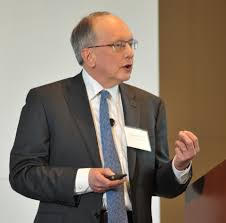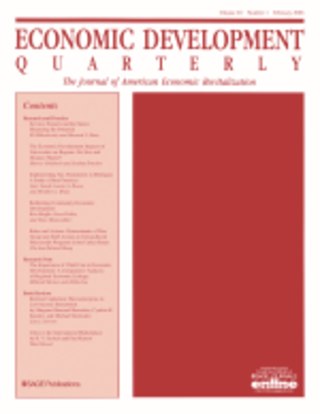Employment is a relationship between two parties regulating the provision of paid labour services. Usually based on a contract, one party, the employer, which might be a corporation, a not-for-profit organization, a co-operative, or any other entity, pays the other, the employee, in return for carrying out assigned work. Employees work in return for wages, which can be paid on the basis of an hourly rate, by piecework or an annual salary, depending on the type of work an employee does, the prevailing conditions of the sector and the bargaining power between the parties. Employees in some sectors may receive gratuities, bonus payments or stock options. In some types of employment, employees may receive benefits in addition to payment. Benefits may include health insurance, housing, and disability insurance. Employment is typically governed by employment laws, organisation or legal contracts.

Wilbur Joseph Cohen was an American social scientist and civil servant. He was one of the key architects in the creation and expansion of the American welfare state and was involved in the creation of both the New Deal and Great Society programs.
Kate Bronfenbrenner is the Director of Labor Education Research at the Cornell University School of Industrial and Labor Relations. She is a leading authority on successful strategies in labor union organizing, and on the effects of outsourcing and offshoring on workers and worker rights.
Thomas Hyclak is an American economist and Economics Professor. He has acted as the chair of the economics department of Lehigh University of Bethlehem, Pennsylvania and is now the Interim Dean of their business school. Most of his research has to do with labor studies, urban-regional economics, and wage studies. He is currently studying labor aspects of the transition to a market economy in Poland. He has published numerous academic papers on regional unemployment, wage and income inequality, gender and racial wage differentials and human resource management practices. Notably, he is the author of “Rising Wage Inequality: The 1980s Experience in Urban Labor Markets” as well as the textbook “Fundamentals Of Labor Economics,” also written by Geraint Johnes and Robert J. Thornton. Tom Hyclak earned his B.A. and M.A. from Cleveland State University and his Ph.D. from the University of Notre Dame. He also serves as a member of the Allentown Urban Observatory and the Board of Directors of the Community Action Development Corporation of Bethlehem, which fosters entrepreneurship and business development in South Bethlehem.
The Kalamazoo Promise is a pledge by a group of anonymous donors to pay up to 100 percent of tuition at many Michigan colleges and universities for graduates of the Kalamazoo Public Schools school district of Kalamazoo, Michigan. The Kalamazoo Promise applies to all of Michigan's state colleges and universities, as well as the 15 private colleges of the Michigan College Alliance and several apprenticeships and skilled trade programs. To receive the minimum 65% benefit, students must have lived within the Kalamazoo School District, attended public high school there for four years, and graduated. To receive a full scholarship, students must have attended Kalamazoo public schools since kindergarten.

Morris M. Kleiner is an American academic. Kleiner received his M.A. in Labor and Industrial Relations, and Ph.D. in economics from the University of Illinois and his undergraduate degree in economics from Bradley University. He is a professor and the inaugural AFL-CIO chair in labor policy at the Hubert H. Humphrey School of Public Affairs at the University of Minnesota, Minneapolis. From 1974 to 1987 he was an assistant and later full professor at the School of Business at the University of Kansas.
The W. E. Upjohn Institute for Employment Research is an American research organization based in Kalamazoo, Michigan. The Institute conducts research on issues related to employment and administers government employment programs.
Occupational licensing, also called licensure, is a form of government regulation requiring a license to pursue a particular profession or vocation for compensation. It is related to occupational closure.
Harry Joseph Holzer is an American economist, educator and public policy analyst.
Michael H. Belzer is an American academic and former truck driver, known as an internationally recognized expert on the trucking industry, especially the institutional and economic impact of deregulation. He is a professor in the economics department at Wayne State University. He is the author of Sweatshops on Wheels: Winners and Losers in Trucking Deregulation. Along with Gregory M. Saltzman, he coauthored Truck Driver Occupational Safety and Health: 2003 Conference Report and Selective Literature Review, National Institute for Occupational Safety and Health, 2007. He has written many peer-reviewed articles on trucking industry economics, labor, occupational safety and health, infrastructure, and operational issues.
Workforce development, an American approach to economic development, attempts to enhance a region's economic stability and prosperity by focusing on people rather than businesses. It essentially develops a human-resources strategy. Work-force development has evolved from a problem-focused approach, addressing issues such as low-skilled workers or the need for more employees in a particular industry, to a holistic approach considering participants' many barriers and the overall needs of the region.
An economic development incentive is known as "cash or near-cash assistance provided on a discretionary basis to attract or retain business operations." These benefits principally encompass tax and economic incentives provided by federal, state, or local governmental bodies. Entities such as utilities and non-profits, can also make incentives available for these purposes. They accord the recipient a monetary benefit or an in-kind benefit. Private enterprises, including individuals, are generally the ultimate beneficiaries of economic development incentives. Depending on the incentive in question, other qualified parties are eligible to receive it, as in the case of municipalities, utilities, or economic development agencies.
Timothy J. Bartik is an American economist who specializes in regional economics, public finance, urban economics, labor economics, and labor demand policies. He is a senior economist at the W.E. Upjohn Institute for Employment Research in Kalamazoo, Michigan.

Economic Development Quarterly is a peer-reviewed academic journal covering the field of economics. The journal's editors-in-chief are Larry C. Ledebur, Timothy J. Bartik, and George A. Erickcek. It was established in 1987 and is currently published by SAGE Publications in association with Cleveland State University.

Erica Lynn Groshen is the former Commissioner of Labor Statistics and head of the U.S. Bureau of Labor Statistics (BLS), the independent, principal fact-finding agency for the U.S. government in the broad fields of labor economics and statistics, inflation, and productivity. BLS is part of the U.S. Department of Labor.
Pensions in Denmark consist of both private and public programs, all managed by the Agency for the Modernisation of Public Administration under the Ministry of Finance. Denmark created a multipillar system, consisting of an unfunded social pension scheme, occupational pensions, and voluntary personal pension plans. Denmark's system is a close resemblance to that encouraged by the World Bank in 1994, emphasizing the international importance of establishing multifaceted pension systems based on public old-age benefit plans to cover the basic needs of the elderly. The Danish system employed a flat-rate benefit funded by the government budget and available to all Danish residents. The employment-based contribution plans are negotiated between employers and employees at the individual firm or profession level, and cover individuals by labor market systems. These plans have emerged as a result of the centralized wage agreements and company policies guaranteeing minimum rates of interest. The last pillar of the Danish pension system is income derived from tax-subsidized personal pension plans, established with life insurance companies and banks. Personal pensions are inspired by tax considerations, desirable to people not covered by the occupational scheme.
Dislocated worker funding is typically used to help workers in events of mass employment loss. A dislocated or displaced worker is defined as an individual who has been laid off or received notice of a potential layoff and has very little chance of finding employment in their current occupation when attempting to return to the workforce. Displaced workers are most frequently found in the manufacturing industry. Legislation addressing training for these workers was first introduced in 1959 through the passing of the Area Redevelopment Act of 1959. Over the years, legislation funding these programs has included wording holding states and private businesses accountable for the roles in the dislocation of workers. Due to the importance of this funding and the negative economic impact of displaced workers, the United States has passed continuing legislation as recent as 2014 and 2015.

Mary Colleen Daly is an American economist, who became the 13th President and chief executive officer of the Federal Reserve Bank of San Francisco on October 1, 2018. She serves on the Federal Reserve's rate-setting Federal Open Market Committee on a rotating basis. Previously, Daly was the Executive Vice President and Director of Research of the Federal Reserve Bank of San Francisco, which she joined as an economist in 1996.
Susan N. Houseman is an American economist who is the vice president and director of research at the W. E. Upjohn Institute for Employment Research. She is also a member of the National Bureau of Economic Research Conference on Research on Income and Wealth, chairs the Technical Advisory Committee of the U.S. Bureau of Labor Statistics, and co-directs the Labor Statistics Program at the IZA Institute of Labor Economics.





